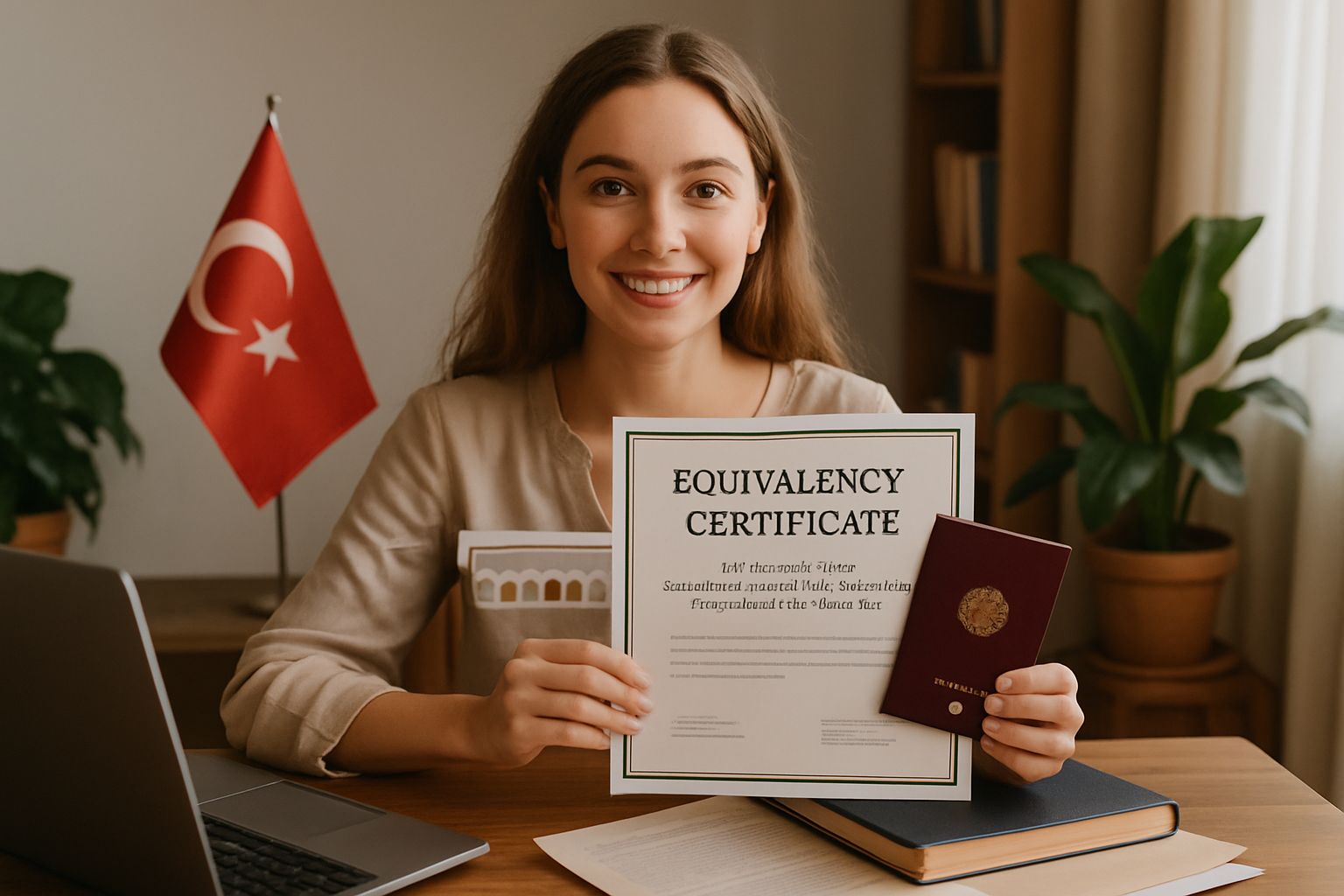Recognition of Foreign Degrees: Equivalency Process in Turkey

Adapting to life in a new country presents unique challenges for expats, and Turkey is no exception. One of the biggest hurdles professionals and students face is having their educational qualifications recognized. Without official recognition, advancing in your career or furthering your studies in Turkey becomes difficult. Understanding Turkey’s foreign degree recognition—known as the Equivalency Process—can streamline your transition and expand your opportunities. Here’s a guide to help you navigate the process smoothly.
Why Equivalency Matters for Expats
Foreign diplomas, whether for high school, undergraduate, or postgraduate degrees, require validation in Turkey before they can be accepted for employment or higher education. The Council of Higher Education (YÖK) handles this responsibility. Equivalency confirms that your studies align with Turkish education standards, ensuring you’re on equal footing with local graduates.
- Unlocks access to jobs where a Turkish degree is compulsory
- Allows enrollment in Turkish universities for further education
- Ensures your professional skills are formally recognized
- Supports applications for professional licenses in regulated sectors
For instance, engineers, doctors, and teachers cannot work in regulated roles without official equivalency, regardless of their international qualifications.
Step-by-Step Overview of the Equivalency Process
The process to recognize your foreign degree in Turkey requires several defined steps. Clarity at each stage saves time and reduces frustration.
- Collect the necessary documents: diploma, transcripts, identity documents, copy of your latest residency permit, and—if needed—legal translation of documents into Turkish.
- Apply online through YÖK’s Denklik (equivalency) portal for university degrees, or through the Ministry of National Education for high school qualifications.
- Book a physical appointment for document verification.
- Attend the appointment, submit your documents, and possibly undergo an oral interview or written exam for some regulated professions.
- Await the decision; most cases take a few weeks up to several months, depending on the complexity and demand.
Many expats find value in consulting education consultants or legal advisors, especially for postgraduate degrees or specialized professions.
Common Hurdles and How to Overcome Them
Documentation issues form the most frequent obstacles during the equivalency process. Missing or partial transcripts, unverified diplomas, and lack of translations often cause delays or rejections.
- Start with a checklist and ensure every document is notarized and translated if required.
- If your institution no longer exists, gather proof via regional education authorities or embassies.
- Track your application status regularly through the online portal.
For professions like medicine or architecture, expect additional written exams to assess whether your qualifications match Turkish standards. For example, a Ukrainian dentist must pass Turkish language and competency tests before gaining full recognition.
Benefits of a Recognized Degree in Turkey
Achieving degree equivalency unlocks many new possibilities. You become eligible for positions that require Turkish academic credentials and can progress professionally without artificial barriers.
- Work legally in professions with strict qualification standards
- Enroll in postgraduate programs and research positions
- Qualify for state benefits, scholarships, or grants based on your academic record
- Stand out in the job market as a credible international candidate
Consider the case of Sara, a British teacher: after her degree’s equivalency, she joined a Turkish private school, then fast-tracked her application for a state school teaching post—something impossible without formal recognition.
Tips to Ensure a Smooth Equivalency Process
Proper preparation makes your journey less stressful and more efficient. Here’s how you can boost your chances of a quick, successful result.
- Submit complete and clear documentation from the start
- Keep certified translations handy for all non-Turkish paperwork
- Attend all requested appointments on time
- Seek extra language support if documentation or exams are in Turkish
- Stay updated on the latest YÖK guidelines, as requirements may change annually
Many expats also join forums and online communities, sharing advice and real-time updates about shifts in the process. Firsthand experiences help you avoid common pitfalls and pace your application realistically.
Navigating Turkey’s foreign degree equivalency process need not be overwhelming. By staying informed, preparing in advance, and leveraging the experiences of other expats, you can ensure your skills translate seamlessly into new opportunities. Turkey values international talent, and getting your qualifications recognized is the first step to a rewarding new chapter as an expat here.
